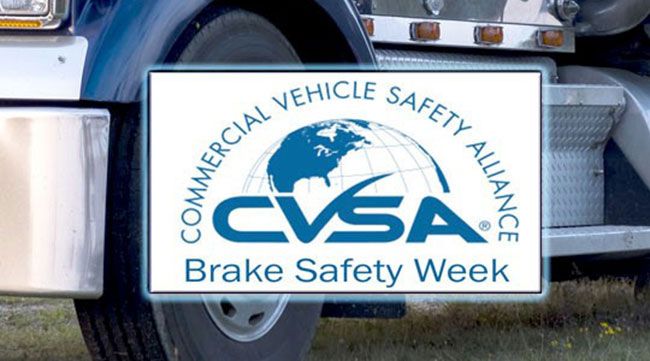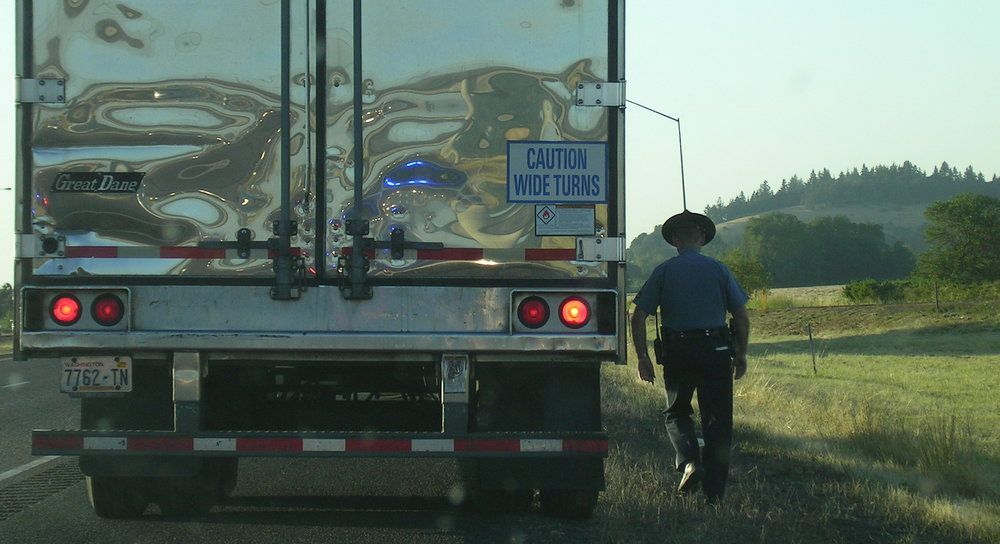
The CVSA’s Brake Safety Week is part of CVSA’s Operation Airbrake Program in partnership with FMCSA and the Canadian Council of Motor Transport Administrators. The goal of Brake Safety Week is to reduce the number of crashes caused or made more severe by faulty brake systems on commercial motor vehicles by conducting roadside inspections and identifying and removing unsafe commercial motor vehicles from our roadways. In addition to inspections and enforcement, outreach and awareness efforts by law enforcement agencies to educate drivers, motor carriers, mechanics, owner-operators, and others on the importance of proper brake maintenance, operation and performance are integral to the success of this safety initiative.
What are the Dates and Focus of the Brake Safety Week?
The dates for the Brake Safety Week for 2023 are August 20-26. Inspectors will be paying close attention to brake lining/pad violations. While checking these brake system components is always part of the North American Standard Inspection Program, CVSA is highlighting brake linings/pads as a reminder of their importance to vehicle mechanical fitness and safety. “The focus of this year’s Brake Safety Week is on the condition of the brake lining and pad,” said CVSA President Maj. Chris Nordloh with the Texas Department of Public Safety. “Brake lining and pad issues may result in vehicle violations and could affect a motor carrier’s safety rating.”
Vehicles with critical brake violations, or other critical vehicle inspection item violations, will be restricted from traveling until those violations are corrected. Vehicles without critical vehicle inspection item violations are eligible to receive a CVSA decal indicating the vehicle passed inspection.
Why is Brake Maintenance so Important?
Brake maintenance should be performed regularly — typically every time you go in for an oil change. During brake maintenance, brake parts should be replaced as needed. If your brake pads are worn and need to be replaced, you’ll need springs, pins and bushings. If you need to replace the brake drums, you’ll need to replace the shoes as well.
Your slack adjusters should be greased to ensure they don’t seize up and lead to brake failure. Your air compressor pressure gauge should be checked to ensure it reads above 60 PSI when the vehicle is off and between 100 and 125 PSI when it’s running. Your hoses and linings should also be in good condition, with no cracks or signs of leaks. They should all be at least one-fourth of an inch thick.
Without actually getting under your vehicle, monitoring brake performance is challenging. You can’t simply check your brakes like you can check your lights or tires. You can do a visual inspection of your brakes, but it’s best to go in for regular brake maintenance performed by professionals.
“We all know how important a properly functioning brake system is to vehicle operation,” said CVSA President Chief Jay Thompson with the Arkansas Highway Police. “All components of the brake system must always be in proper operating condition. Brake systems and their parts and components must be routinely checked and carefully and consistently maintained to ensure the health and safety of the overall vehicle.”
What Were the Results from the 2022 Brake Safety Week?
Commercial motor vehicle inspectors in Canada, Mexico and the U.S. conducted 38,117 inspections of commercial motor vehicles Aug. 21-27 for Brake Safety Week. Of the total number of the commercial motor vehicles inspected, 13.3% were placed out of service for brake-related critical vehicle inspection item violations. That also means that nearly 87% of the commercial motor vehicles inspected throughout North America during Brake Safety Week did not have brake-related critical vehicle inspection item violations.
For the full results from the 2022 Brake Safety Week click the following link – https://www.cvsa.org/news/2022-bsw-results/
What are Some Good Tips for Truck Drivers to Prepare for Brake Safety Week?
Do Your Homework: Your inspection will be a lot easier if you’re educated and have everything ready before you hit the road. Before Brake Safety Week, educate yourself and your drivers on FMCSA brake regulations, brake maintenance tips, and more. The CVSA website has checklists and info you can pass on to your drivers – https://www.cvsa.org/wp-content/uploads/Brake-Inspection-Check-List.pdf . Also make sure you have your drivers license, registration, and all paperwork inside your cab and ready to show the inspector.
Know What Inspectors Are Looking for: Inspectors are going to be focused on your trucks’ brake-system components to find out-of-adjustment brakes and brake-system violations. Inspectors will be looking for:
- Loose or missing parts
- Air or hydraulic fluid leaks
- Worn linings, pads, drums or rotors
- Other faulty brake-system components
- Anti-lock braking system (ABS) indicator lights
Check Your Truck: Every time you hit the road, do a pre-trip brake inspection to test for any leaks and examine your truck’s brake shoes. Walk around your truck and look for loose hoses and leaks and listen for any air leaks. Check for low air signals, check your air disc brake rotors for cracks, and inspect brake linings for thickness, cracks, and wear.
Make Repairs: If you find any cracks or issues during your pre-trip inspection, be sure to get them fixed. By checking and fixing your truck before Brake Safety Week, you can prevent any surprises, avoid being placed out-of-service, and get back on the road faster.
More information on Brake Safety Week can be found on the CVSA website – https://www.cvsa.org/news/2023-bsw/
Sources:
CVSA Website – https://www.cvsa.org/
“CVSA Brake Safety Week 2023: Everything You Need to Know”, July 12, 2023, ATS.


